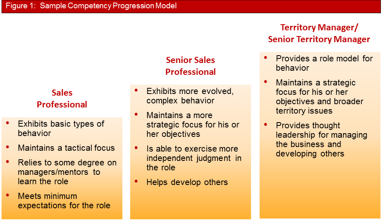Million-dollar sales reps are rare—but they do exist, and your organization can strive for such success. We have tips from Sibson’s Sales Force Effectiveness Practice Leader Joseph DiMisa on how to get your sales team on the path to high earnings.
Fewer than 3% of product sales reps make more than $500,000 a year. Push the earnings up to the seven-figure benchmark, and that number drops to less than .001%. What does it take to be a million-dollar earner? Knocking on more doors, calling on more clients, and being smarter than the competition are all key.
Even more important, however, is having the right behavioral competencies for the job and spending more time on the most productive activities. The following looks at what organizations can do to help their reps push closer to the million-dollar threshold and discusses the best practices of seven-figure sales reps.
Do Your Reps Have the Right Competencies?
The first step in creating seven-figure reps is to make sure that they have the right competencies for their job. Competencies are the knowledge, skills, and types of behavior reps need to retain and grow their accounts. They are “how” the reps do their jobs. A competency progression model (see Figure 1) illustrates the various degrees of competency reps need at each level of a sample organization.

Have you noticed that some of your employees have the potential to be effective leaders? Get them the training they need with BLR’s TrainingToday Leadership for Employees Library. Get the details here.
Reps who master the necessary competencies and demonstrate them frequently, will achieve the best results. As reps gain experience, they can take on increasingly complex work (e.g., more accounts, larger assignments), gain a deeper understanding of the business, and develop more effective management and problem-solving skills. This will allow them to progress in the organization and earn more.
How can an organization determine what competencies its reps require? The key is to define each job’s role. Competencies grow out of and complement a job’s role—what a job does and how and why it does it. If a sales role is not well-defined, organizations cannot know how to properly staff it. Too often, management looks for background and experience that do not match what it takes to succeed given the organization’s lines of products/services, the sales process, and the customers’ profile and expectations.
To understand a job’s role, an organization must know what makes each job tick. Sibson Consulting has created a Job Specialization Framework to define jobs and, ultimately, guide the sales compensation plan design. The framework uses the following five filters:
- Customer targeting and segmentation. The organization should identify the customers that the rep must target. It can then segment the accounts by size, type, strategic importance, and/or other criteria. Different segments may require different competencies.
- Sales strategy. Sales jobs are based on three primary tactics, commonly identified as PAR strategies—where the initials stand for penetration, acquisition, and retention (see Figure 2). Knowing what PAR strategies each job needs can help the organization determine the competencies its reps require.
- Organizational hierarchy. This filter looks at how the job fits within the organization’s structure (e.g., individual contributor, manager). It also considers the reps’ support structure (e.g., do they get help from others or are they on their own?). In many organizations, an account manager oversees all sales activity in an account and is supported by a team of sales reps. In other cases—usually smaller, nonstrategic accounts—sales reps may cover an account independently.
- Sales process. An organization takes three specific steps to complete a sales transaction—identify the opportunity, close the sale, and support and service the customer. Each step requires specific competencies. It is important to know what the rep will actually do within the process and what skills it requires.
- Product and/or product lines. Reps need to develop in-depth technical knowledge and expertise about the products and/or product lines they are assigned. This is particularly important if reps are specialized by product (e.g., a data specialist, services specialist, software specialist).

Trying to get your employees trained to show leadership? It isn’t easy to fit it in—schedulewise or budgetwise—but now there’s BLR’s Leadership for Employees Library. Train all your people, at their convenience, 24/7, for one standard fee. Get More Information.
Organizations that want to help their reps become seven-figure earners need to understand their job roles, identify the competencies each role requires, and then make sure the reps in each role have the right competencies.
